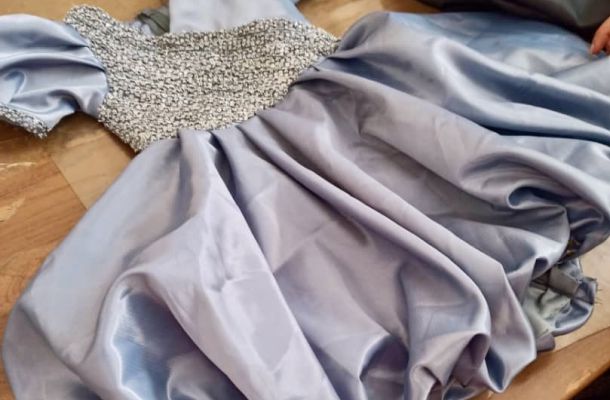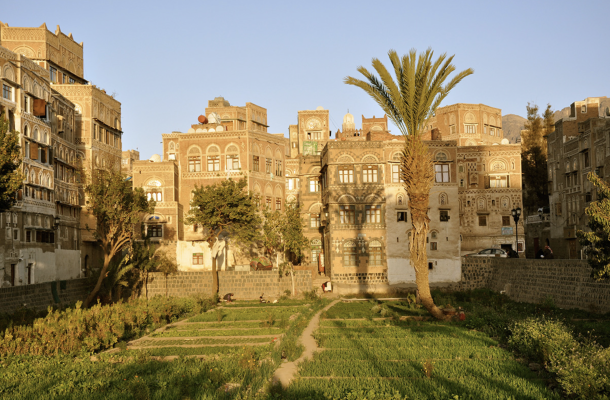"Why I went back to a war zone"
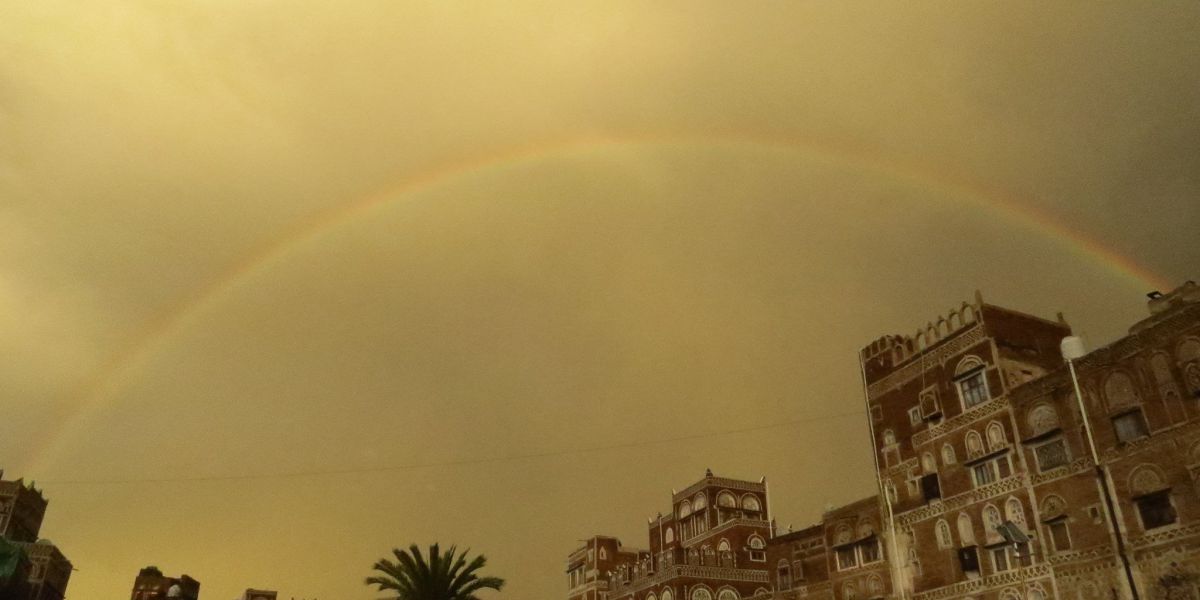
WAR IN YEMEN
Layla M. Asda (26) and her family wanted to escape the war in Yemen. They wanted to live in safety. So they said goodbye to their country and went to Malaysia. But in Kuala Lumpur they just lived the war from abroad, which was even worse as they were safe while their loved ones were not. And then their longing for their country, their people, their house and the smell of the earth in Sana'a after the rain became overwhelming. "I discovered that there is a stronger feeling than fear", says Layla. "It's the urge to get the feeling of belonging back."
After eight months in safety they returned to Yemen. They went home to a war zone. Here Layla gives a gripping account of their journey.
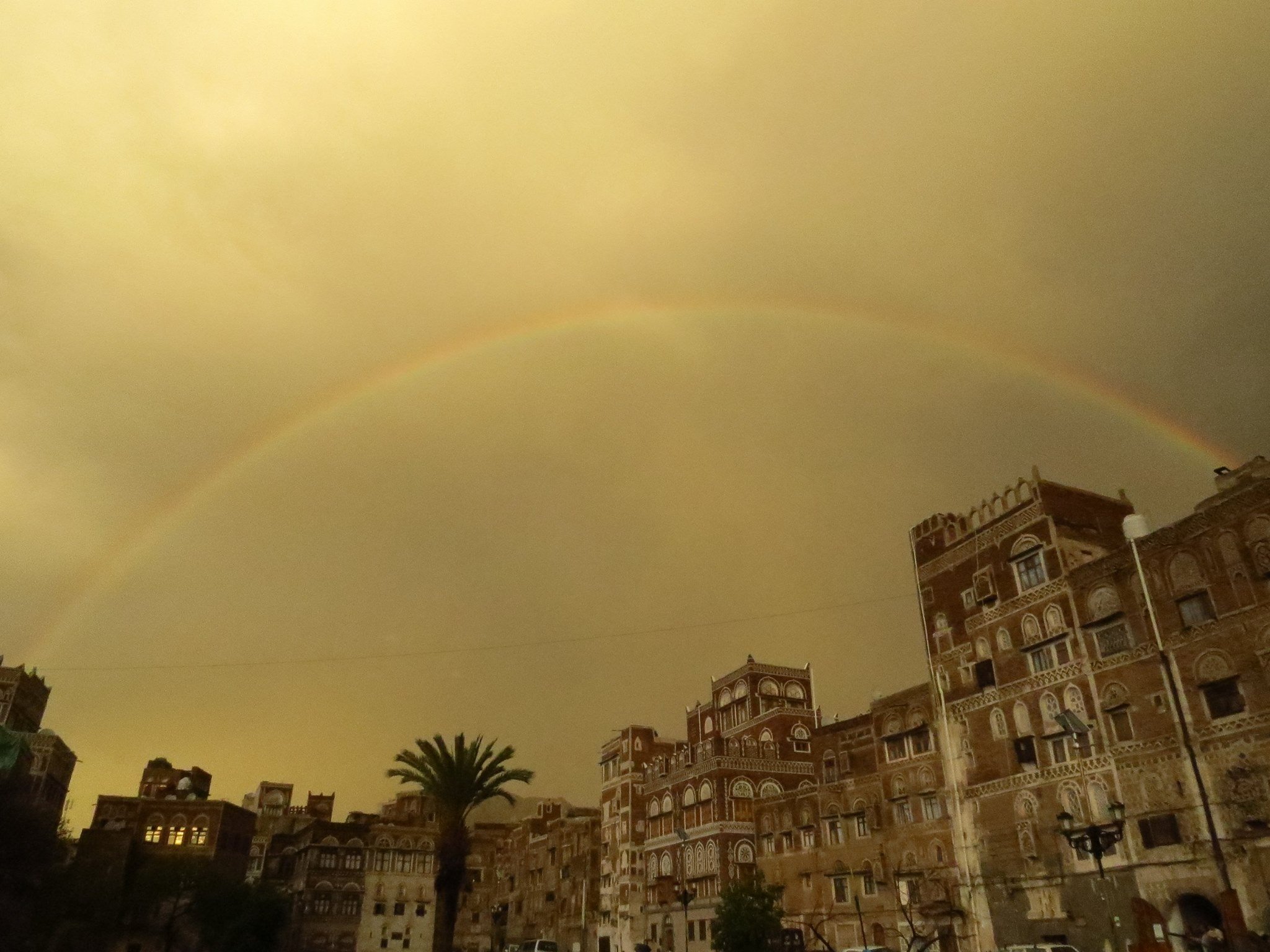
The Yemeni capital Sana'a is a war zone. But it keeps mesmerising its inhabitants. And the rainbow is a symbol of hope. Photo: Essam Al-Kadas

“Yemen is our home, our soil, and the place where our loved ones live. And this weighs more than the fear of getting killed." Layla M. Asda returned home to a war zone.
It’s dark, there is no light at all!
I wondered, as darkness was indeed the only thing I saw through the window of the plane. I have always loved to see my country from the window of a plane and watch big lights turn into small ones and big buildings become tiny. But now there was nothing to see, not even a single light, my country was swallowed by darkness. It was as if electricity had never been invented. My country seemed covered with sadness like a widow grieving over her deceased husband. And my heart became blind with grief. Once my country used to be called “Happy Arabia”, Arabia felix, but now it was just “the mourning country”.
As the plane took off, my father burst into tears. He cried in deep sorrow. And we cried with him. It felt devastating to see him in such pain, the pain of leaving our homeland to go to the middle of nowhere. The pain of having no homeland any longer. I wish I could translate my feelings into words, but no words can ever describe this pain we felt. When I left my Yemen, I felt as I was stripped of my soul. I travelled - leaving my soul behind.
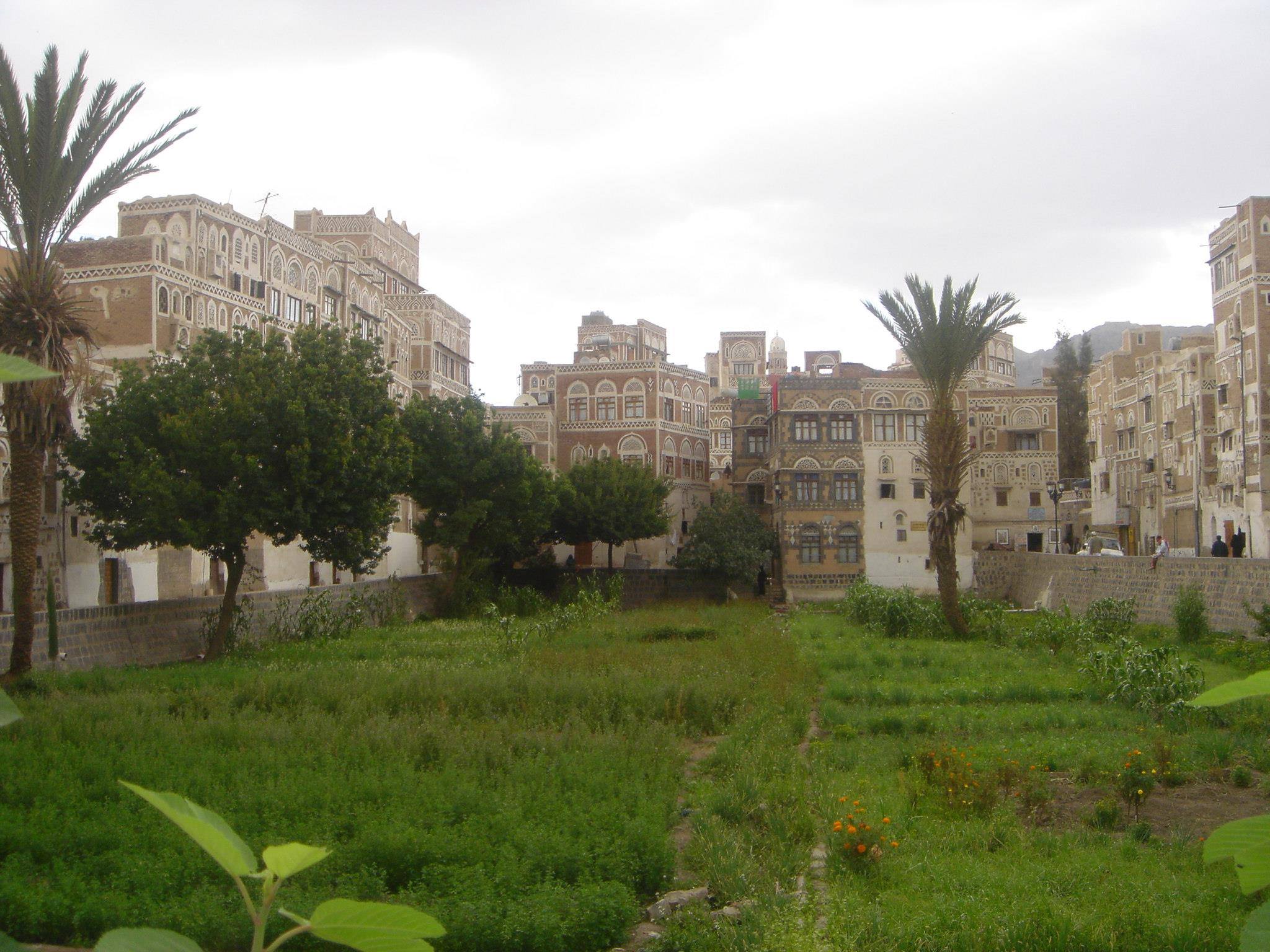
The Yemeni capital Sana'a at dawn the fog still covering the skies. Photo: Essam Al-Kadas
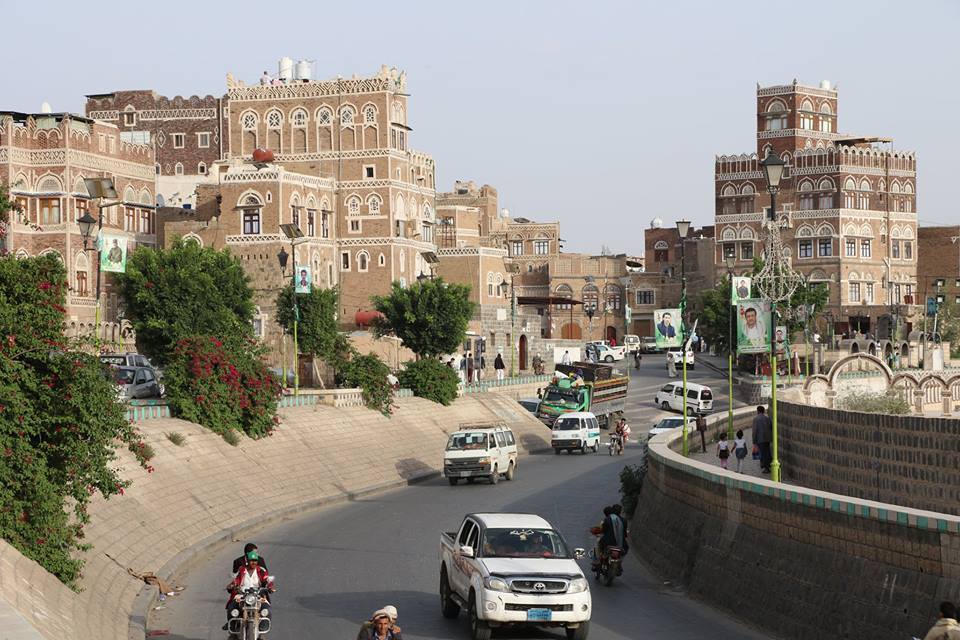
The street al-Saila in Sana'a during its best days. Photo: Essam Al-Kadas
War is a monster devouring everything that is around.
It destroys life. We used to have a life in Sana’a, the Yemeni capital. I used to have a job, I was planning for my future, had ideas and ambitions. I was happy and satisfied with what I had, or so I thought until war came and killed our souls in the blink of an eye.

The bombing of mount Attan in Sana'a on the 20th of April 2015.
Photo: Mohammed Alghorbani
I have lived through the war for seven months, and life was unbearable. Death is all you see and fear is all you feel. Horror instead of blood runs through your veins, because the blood is frozen in agony. We often played with the thought of fleeing the war and its horrible reality, we just wanted to feel safe. But never have I imagined that the day would come on which we leave our dear country. I have always pushed this thought away. It was too painful.
But what when you take the decision to leave?
I will never forget this moment. And now I ask myself: Did we have a choice? It’s either or. Either you stay in the war zone or you abandon everything for the sake of safety of which you believe is your most precious treasure.
And so the day that I always feared came, and I left without my soul and said goodbye to my life, my loved ones, and my country. And I found myself watching my country disappear through a window of the plane.
When the war in Yemen started on the 26th of March 2015, the first thing that was destroyed was the airport. There were no flights anymore, and a blockade was imposed on us. All Yemenis who were outside of the country couldn’t travel back home. After several months, flights by our national airline Yemenia Airlines started operating again. They brought back Yemenis who had been stranded abroad, and at the same time Yemenis were allowed to travel outside of Yemen. But the only airport open for travelling is the one in Amman, the capital of Jordan. From there Yemeni passengers can continue to other destinations but the first destination is always Jordan - on the conditions, however, that the flight makes a first stop in Besha, a military airport in Saudi Arabia, to be inspected.
During these stops the passengers were insulted and treated badly for no reason. They were kept for hours without food, water or even medication for those in need. Thus when we arrived in Besha I was very nervous and angry. Even though I only had to show my passport, I felt humiliated. I was counting the minutes for the ordeal to be over, when suddenly the flight attendant called out my family name:
“Asda family, please stand up, you are requested to come for interrogation!”
My heart was about to leave its place and my legs couldn’t carry me anymore. I felt like being dragged to prison innocently. Then the Saudi officer said: “No, we only want Anas!” But Anas is my little brother, he is just seven years old.
“I did nothing!” Anas was horrified. “Will they take me? “ His tiny voice shook with fear. “Please, tell them I’m only a child. I am still playing with my toys!”
When the officer saw my little brother and realised that he was asking for a seven year old child, he wanted my father instead. My father went to the front of the plane. The officers asked him a few questions and told him that my brother’s name was on the list of names to be verified. My father spent just a few minutes, but it felt like ages and my head was spinning, crazy thoughts rushed through my mind. I tried to hide my fear from my brother, though. We all tried to cheer him up and made jokes. We tried to push the anger away.
In Amman my father was interrogated again. "Was it just because we come from Yemen?", I wondered. "Are we guilty because we come from a country that is in war?" These questions have remained without answer so far. It seemed that the misery we have been through hasn’t been good enough yet.
Our final destination was Malaysia, one of the very few countries Yemenis are allowed to enter without a visa. Malaysia is even the only country that welcomes Yemenis to stay due to the war. The Malaysian government allows Yemenis to extend their tourist visa up to one year. And for this we feel very grateful to Malaysia that opens its arms warmly to us.
I can’t forget my first night in Kuala Lumpur. I slept like a dead. I felt safe after countless nights that we spent wide awake waiting for the bombings to end - bombings, that in the end never stopped.
And in Kuala Lumpur a new journey started. However it was not a journey of safety as we had dreamt of, but one of living a war from a distance. We had thought that we would escape from the war - only to find ourselves caught in the same reality as before.
And more so: Our fear for our loved ones grew even bigger here, in Malaysia, because we knew that our loved ones were under fire and we were far away. I had this ugly feeling of guilt that I’m safe while my people are not.
We stayed in Malaysia for almost eight months. We tried to settle down, tried to make ends meet, but all our chances were blocked. We could not work because of our tourist visa, but regardless of that we weren’t able to adapt to living there. When we left Yemen we thought the war would only last a short time and then we would go back. Most Yemenis thought the same. All of our thoughts were in Yemen. We were stuck in a limbo.
My father said, life in Malaysia was like living in a soft prison. A jail without jailers, one that was permeated with all the worries and concerns of our home. Never had I thought that I won’t be able to adapt to a new life in a foreign country. But I realised very soon that life for me in Malaysia was just waiting to return to life. To my life. Malaysia is beautiful. But it's not Yemen.
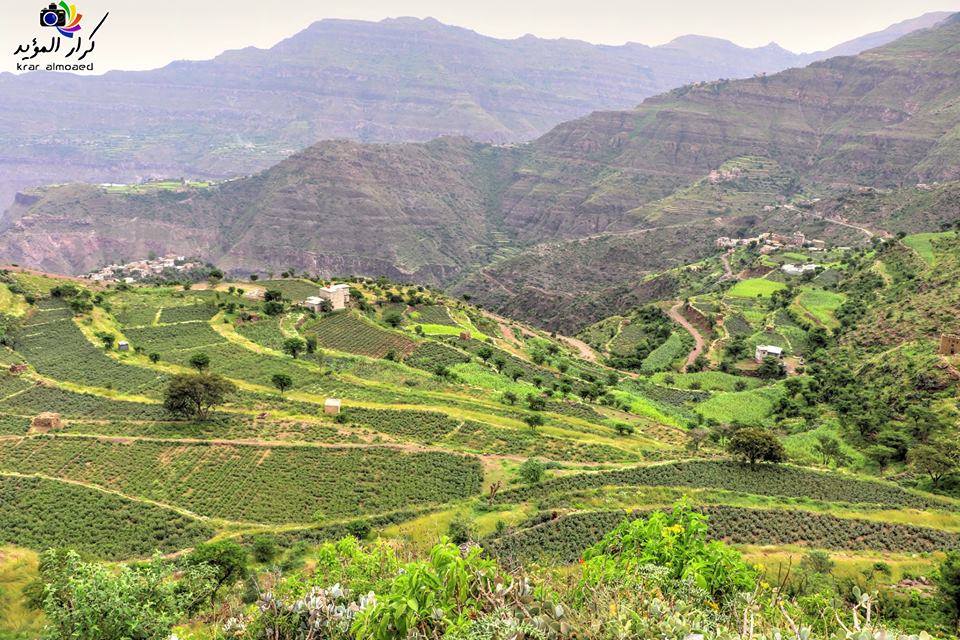
The beauty of Yemen captured in the governorate of Ibb. Photo: Krar Almoaed
Don’t get me wrong: Malaysia is safe. We had electricity, water, gas and all the basic needs we lack in our country. But would that be enough? What about my sense of belonging? I don’t belong here in Malaysia. This is not the life I wanted to live - without my loved ones. I cursed the war a zillion times because it deprived of life in my dear Yemen. I missed the smell of the air after the rain, my people, the pleasure of attending the wedding of my best friend. I missed my house, my life, just every single thing there. I missed that sense of belonging that I treasure.
And then the journey of nostalgia began. This is when we decided to go back!
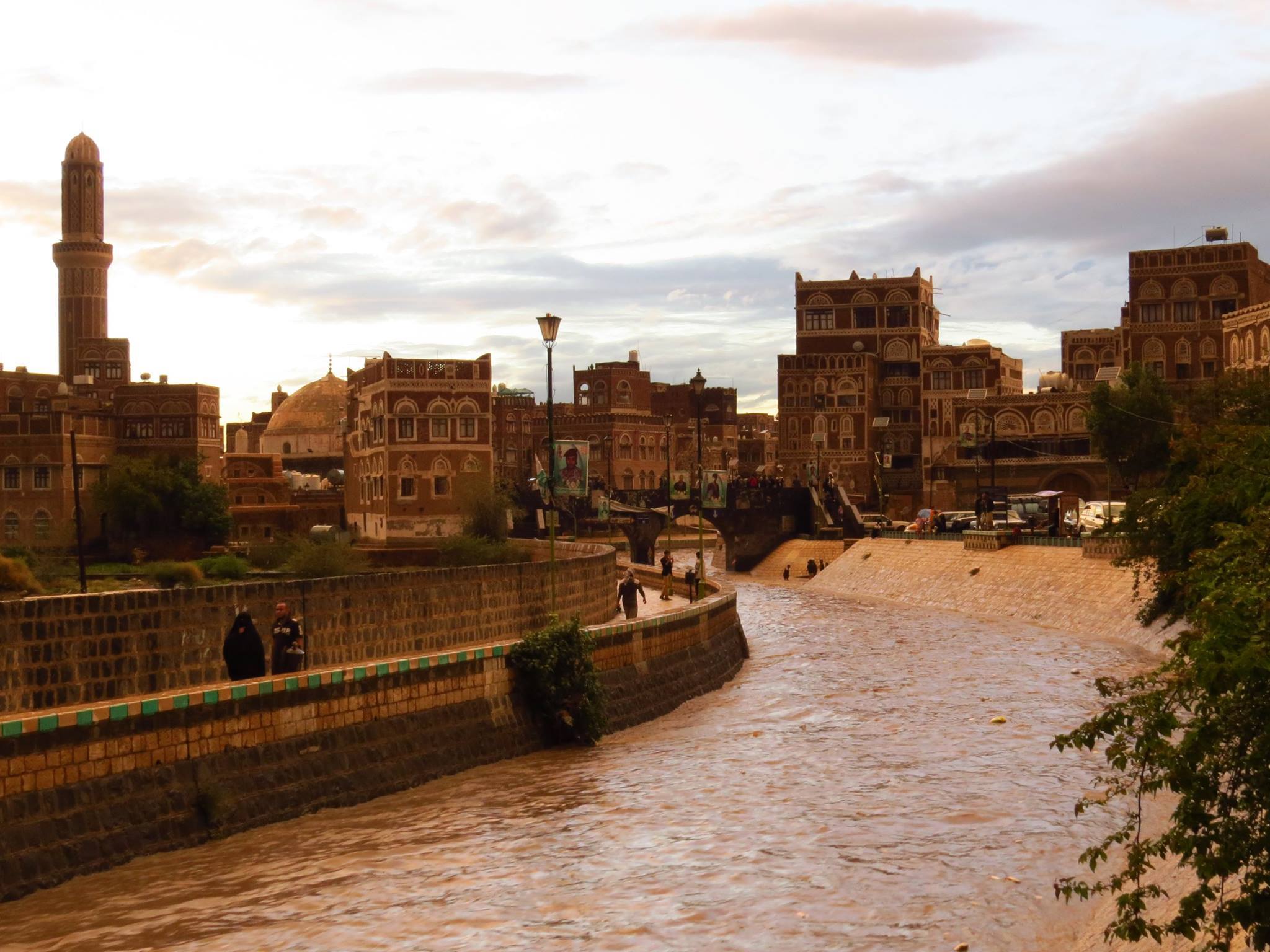
Sana'a during the rain. Photo: Essam A-Kadas
How can I go back to a war zone? This question would probably come to everyone’s mind: No sane person would ever prefer to live in a war zone.
I had thought the same before I left my country, I just wanted to feel safe. I hate war. I hate it. Those terrible sounds of the planes and the rockets still haunt me during my sleep. Never ever would I be able to forget. I remember once that I said I’d rather die in the sea than under the rubble of my house. But now, after having fled the war, I discovered that there is stronger feeling than fear: It’s the urge to get the sense of belonging back. And to regain my peace of mind. Because I doubt I would ever be able to live with that feeling of guilt that arises when you are safe and enjoy all the basic needs while your people are not.
How ironic and contradictory that I couldn't adapt to life in Malaysia, while I was ready to adapt to life in war. Living in a war is one of the toughest experiences you can go through, but nevertheless you learn how to reshape your life along with those painful conditions. You have to cope with them. After all, this is your life you have to adapt to it. There is no other option.
After a year of war in Yemen people started to do exactly that. They weren't scared any more. When we talked to members of our family they told us to come back and adapt to it.
Living in another country made me appreciate all we have in my dear Yemen. Yes, Yemen is a poor country and many may not understand how I can I even dare to compare Yemen with other countries. But no one can understand this irresistible beauty Yemen has. It's true that our life is difficult and we lack everything that people always take for granted: We don't have electricity, water, gas, petrol and many other things are hard to get. But still our life is simple. Yemeni people are simple and it's this simplicity that has all the beauty. My people are kind and helpful, and I missed living among them.
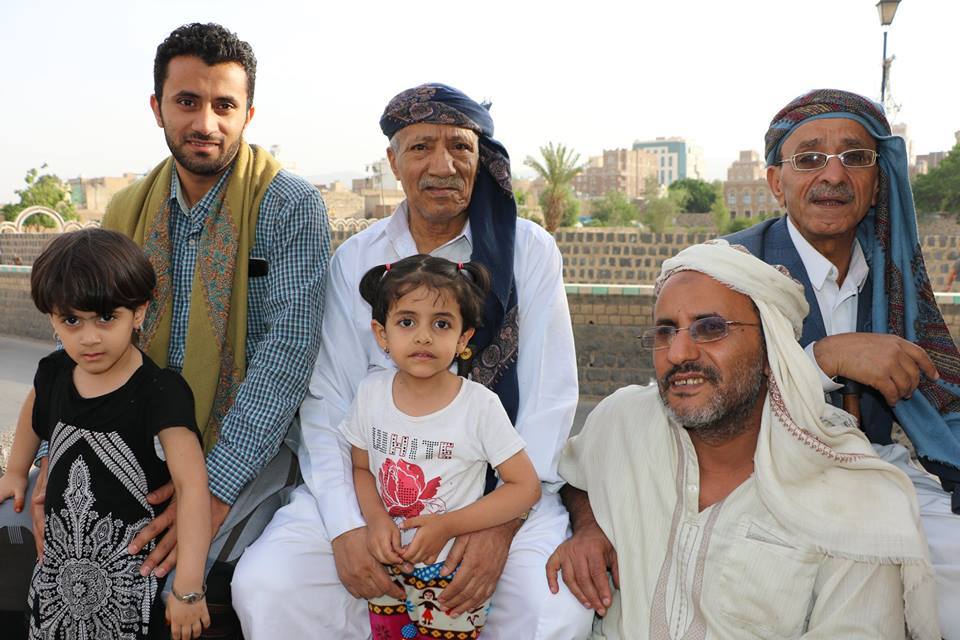
Yemeni fathers and grandfathers with their kids. Photo: Krar Almoaed
I can’t explain the love relationship we have with our country. Some might say that it's silly to love a country that is caught in a war and this love won't help you if you get killed. But my friend once said, that “Yemen is our home, our soil, and the place where our loved ones live. And this weighs more than the fear of getting killed”.
We are not the only ones who went back. Many Yemenis, even business men, returned, even though they could afford to stay out of Yemen. So I guess, yes, love is stronger. And maybe it’s also this hope that if we come back we’ll get our lives back.
The day I prayed so much to come finally arrived, and we came back to our Yemen. My heart was beating with joy, and my soul was racing with my body to be filled with that beautiful air of my country. When the plane landed, all of the passengers were clapping hands and shouting with joy. It was a moment I will never forget. The happy tears of my family when we touched down are like nothing in the world.
When I stepped out of the plane and saw the destroyed airport I felt a painful twinge in my heart. Yet this hasn’t prevented me from being strong and facing my fears. I felt that I came back stronger, ready to face the war and to help rebuilding my country.

A destroyed plane at the airport in Sana'a. Photo: Mohammed
Now it’s five months since we came back. I have resumed my studies to finish my master’s degree in International Development. Life was calm for a while as the bombings in Sana’a decreased and I was anticipating that life would be back to normal again as peace negotiations in Kuwait were going on. People hoped that the war would be over soon. We even made a campaign that we called “Don’t return to Yemen without peace”.
But peace seemed to fly away once again when the negotiations failed miserably.
Now we are back to square one with zero improvements. Intensive airstrikes are back committing horrible massacres. In just one week a hospital run by “Doctors Without Borders”, a children’s school and a food factory have been bombed. All military fronts are on fire and the internal fighting has intensified as well.
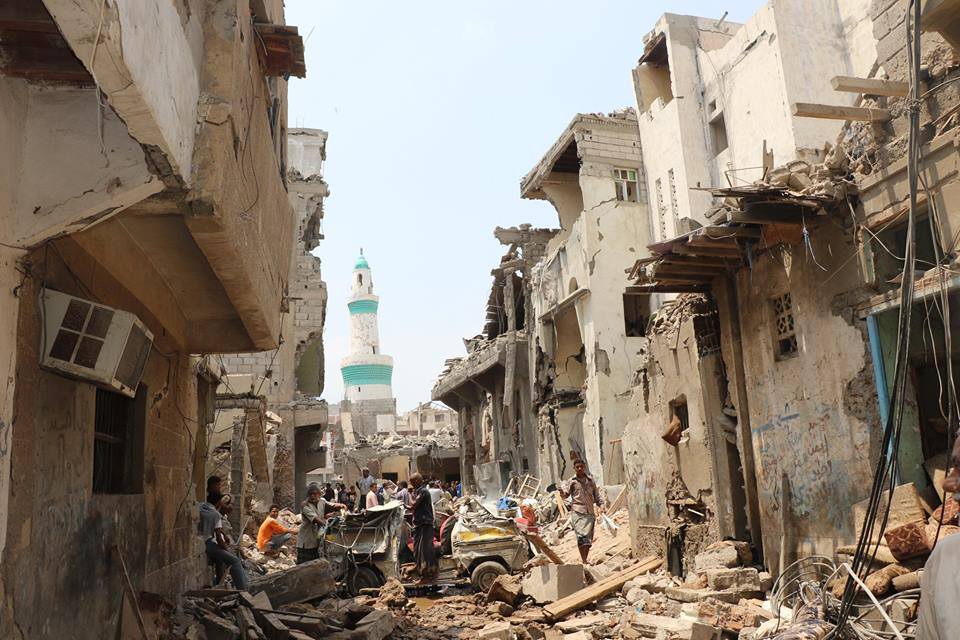
In the city of Hodeidah an entire neighbourhood was massacred. Photo: Krar Almoaed
He lost his whole family: One of the survivors of the massacre. Photo: Krar Almoaed
The political situation became even more complicated, when a Supreme Political Council was formed and endorsed by the Parliament, which held its first session since one and a half years. On the 20th of August, large crowds of people rallied in the main square in Sana’a to voice their support for the Supreme Political Council to run the country. The crowds chanted: “We will sacrifice our souls and blood for the sake of Yemen,” and their sounds overpowered the sounds of the planes that were dropping their bombs simultaneously.
This thirst for blood does not seem to end. The Saudi-led military coalition keeps committing war crimes. Just a couple of weeks ago it killed over 450 people when it targeted a funeral. The international community reacted with harsh criticism, but the outcry ebbed away quickly. The coalition admitted that the bombing of the funeral was a mistake and said sorry - just to commit another massacre on the very same day. And the coalition will continue to do so, because our blood simply is worth nothing!
And as if this wasn't enough, hunger has begun to affect many places in Yemen. The blockade of food by the warring parties increases the humanitarian disaster in our country. I's an unspeakably cynical strategy of war. About 1, 5 million children are acutely malnourished, 370000 risk dying from lack of food. Yemen will lose an entire generation because of famine.
Lately people have run out of money and started to become desperate. Government employees haven’t been paid for over two months. The bank of the government, that President Hadi moved to Aden as the area is under government control, has failed to pay the salaries, and so has the bank that is under the control of the Houthis. We have two banks, but there is no money to pay the people. There is not enough money and political will to feed the people. But there is still enough money and will to buy guns and artillery to keep the war going.
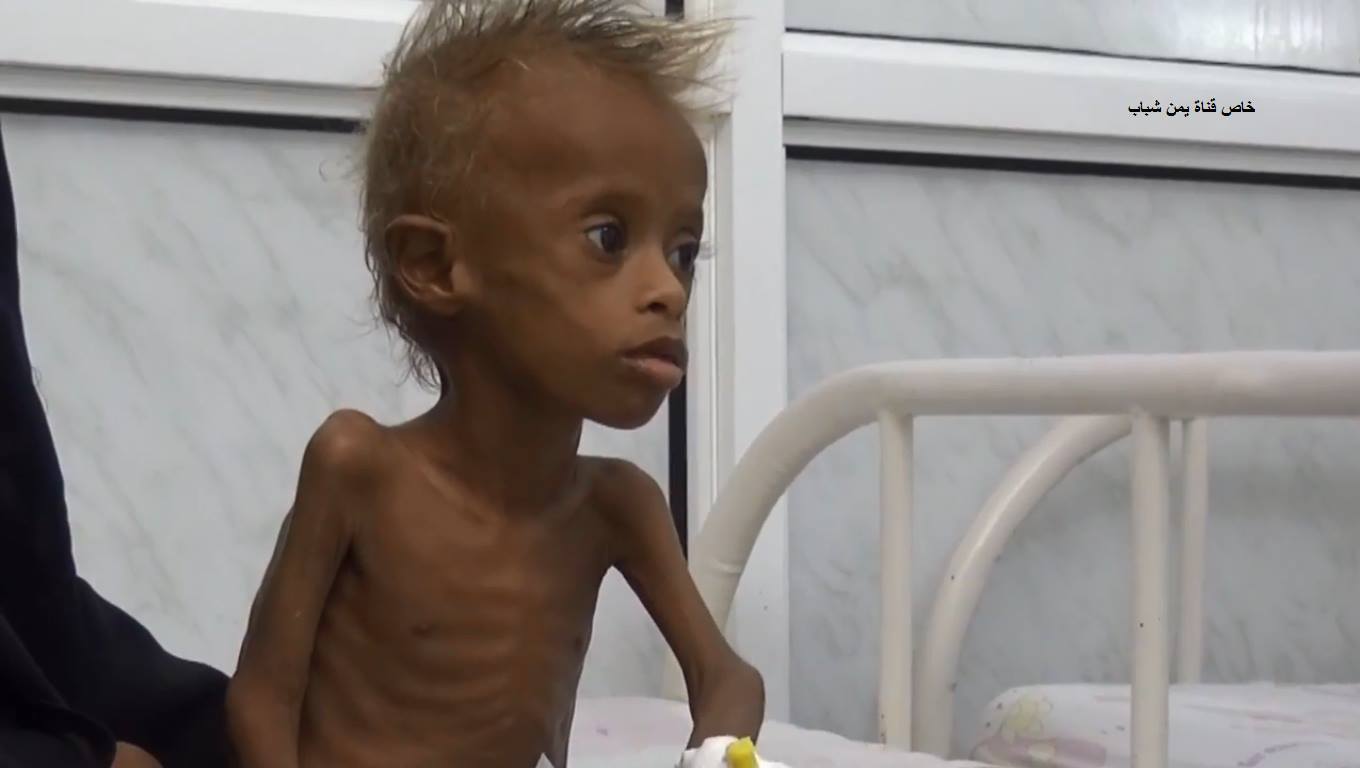
The face of famine. The blockade of food and medical goods by the warring parties is one of the cruellest war strategies. It increases the humanitarian disaster in Yemen.
Facing all this I ask myself: “Do I regret coming back?” And my answer is: “No! Of course not!” We were hoping that the situation will change and we still keep this glimpse of hope that we will live peacefully one day. The war has been going on for over a year and I fear to count more years of war. This is ENOUGH!


